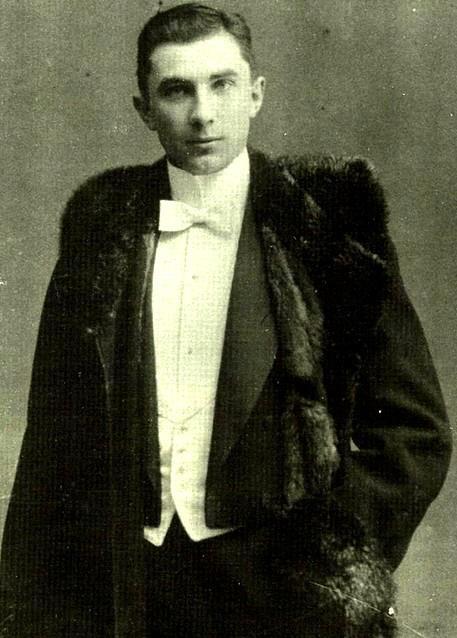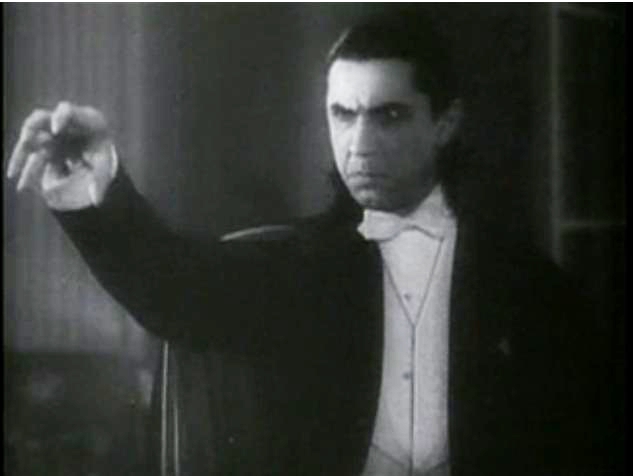|
John Hopkins The Third
''John Hopkins the Third'' (german: Die verschwundene Million / ''The Missing Million'') is a 1921 German film directed by Wolfgang Neff and featuring Béla Lugosi as the villain (a Western cowboy role). It was also known as ''Johann Hopkins III''.Bela Lugosi: Dreams and Nightmares by Gary D. Rhodes, with Richard Sheffield, (2007) Collectables/Alpha Video Publishers, pg. 270, ISBN 0-9773798-1-7 (hardcover) Cast In alphabetical order * Curt Cappi – D. I. Winsor (credited as Curd Cappi) * Sybill de Brée * Fritz Falkenberg – Eddy Corvin * Harry Frank – John Hopkins, the detective * Frydel Fredy * Béla Lugosi - as The Villain * Ludwig Rex * Preben J. Rist – W. R. Turner George Corvin * Alfred Schmasow – Commissar Sam * Lya Sellin – die schwarze Mary * Heinrich von Korff – Mat Bliß See also * Béla Lugosi filmography Bela Lugosi (1882–1956), best known for the original screen portrayal of Bram Stoker's Dracula in 1931, was in many movies during the course of his ... [...More Info...] [...Related Items...] OR: [Wikipedia] [Google] [Baidu] |
Wolfgang Neff
Wolfgang Neff (8 September 1875 – after November 1936) was an Austrian film director. He directed 50 films between 1920 and 1930. He was born in Prague, Bohemia, Austria-Hungary (now Czech Republic). Selected filmography * ''Nat Pinkerton in the Fight, Nat Pinkerton im Kampf'' (1920) * ''John Hopkins the Third, Die verschwundene Million'' (1921) * ''Raid (1921 film), Raid'' (1921) * ''The Queen of Whitechapel '' (1922) * ''Fratricide (film), Fratricide'' (1922) * ''The Cigarette Countess'' (1922) * ''Yellow Star (film), Yellow Star'' (1922) * ''The Woman from the Orient'' (1923) * ''The Heart of Lilian Thorland'' (1924) * ''The Old Ballroom'' (1925) * ''The Salesgirl from the Fashion Store'' (1925) * ''People in Need (film), People in Need'' (1925) * ''Ash Wednesday (1925 film), Ash Wednesday'' (1925) * ''German Women - German Faithfulness'' (1927) * ''The Harbour Bride'' (1927) * ''The Girl from Frisco'' (1927) * ''The Lorelei'' (1927) * ''Circus Renz (1927 film), Circus ... [...More Info...] [...Related Items...] OR: [Wikipedia] [Google] [Baidu] |
Béla Lugosi
Béla Ferenc Dezső Blaskó (; October 20, 1882 – August 16, 1956), known professionally as Bela Lugosi (; ), was a Hungarian and American actor best remembered for portraying Count Dracula in the 1931 horror classic Dracula (1931 English-language film), ''Dracula'', Ygor in ''Son of Frankenstein'' (1939) and his roles in many other horror films from 1931 through 1956. Lugosi began acting on the Hungarian stage in 1902. After playing in 172 different productions in his native Hungary, Lugosi moved on to appearing in Hungarian silent films in 1917. He had to suddenly emigrate to Germany after Hungarian Soviet Republic, the failed Hungarian Communist Revolution of 1919 because of his former socialist activities (organizing a stage actors' union), leaving his first wife in the process. He acted in several films in Weimar Germany, before arriving in New Orleans as a seaman on a merchant ship, then making his way north to New York City and Ellis Island. In 1927, he starred as Coun ... [...More Info...] [...Related Items...] OR: [Wikipedia] [Google] [Baidu] |
Silent Film
A silent film is a film with no synchronized recorded sound (or more generally, no audible dialogue). Though silent films convey narrative and emotion visually, various plot elements (such as a setting or era) or key lines of dialogue may, when necessary, be conveyed by the use of title cards. The term "silent film" is something of a misnomer, as these films were almost always accompanied by live sounds. During the silent era that existed from the mid-1890s to the late 1920s, a pianist, theater organist—or even, in large cities, a small orchestra—would often play music to accompany the films. Pianists and organists would play either from sheet music, or improvisation. Sometimes a person would even narrate the inter-title cards for the audience. Though at the time the technology to synchronize sound with the film did not exist, music was seen as an essential part of the viewing experience. "Silent film" is typically used as a historical term to describe an era of cinema pri ... [...More Info...] [...Related Items...] OR: [Wikipedia] [Google] [Baidu] |
Ludwig Rex
Ludwig Rex (1 January 1888 – 29 September 1979) was a German film actor of the silent era. He appeared in 55 films between 1918 and 1927. He was born in Berlin, Germany and died in London. Selected filmography * ''Totenkopfreiter'' (1917) - Napoleon * ''The Merry Wives of Windsor'' (1918) - Herr Reich * ''Arno Starks Kraft'' (1918) - Arno Stark * ''Der Fluch des Nuri'' (1918) - Nuri * '' Nocturne of Love'' (1919) * ''Die lachende Seele'' (1919) * ''Der neue Herr Generaldirektor'' (1919) * ''Homo sum'' (1919) * ''Seelenverkäufer'' (1919) - Kapitän Brooks * ''Die Geächteten'' (1919) - Wirt Petruk Czapka * ''Um Diamanten und Frauen'' (1919) - Mr. Hunter * ''Retter der Menschheit'' (1919) - Felsen * ''Fluch der Vergangenheit'' (1919) - Bertram * ''Der Glücksschmid'' (1919) - Tobias Möhring, Dorfschmied * ''Luxuspflänzchen'' (1919) * ''Die Teufelsgeige'' (1919) * ''Die siebente Großmacht'' (1919) * ''Der Tintenfischclub'' (1919) * ''Gewalt gegen Recht'' (1920) * ''The S ... [...More Info...] [...Related Items...] OR: [Wikipedia] [Google] [Baidu] |
Béla Lugosi Filmography
Bela Lugosi (1882–1956), best known for the original screen portrayal of Bram Stoker's Count Dracula, Dracula in 1931, was in many movies during the course of his 39-year film career. He appeared in films made in his native Hungary, Germany and New York before re-locating to Hollywood in 1928. Films are listed in order of release. (see Bela Lugosi for his biography.) 1910s This is a list of confirmed film roles Lugosi has performed in. Some films from other filmography sources have not been included here such as Star Film's ''Casanova (1918 film), Casanova'' (1918), ''Lulu (1918 film), Lulu'' (1918) and ''Lili (1917 film), Lili'' (1917), all of which had announced that Lugosi would appear in them, but Lugosi was apparently dropped from the cast before production began. 1920s 1930s 1940s 1950s Television/ Radio *''Intimate Interviews'' (1932) interviewed on radio by Dorothy West *''Hollywood on Parade No. A-8'' (1933) a 10-minute comedy skit/ short subject with Bonnie ... [...More Info...] [...Related Items...] OR: [Wikipedia] [Google] [Baidu] |
1921 Films
The following is an overview of 1921 in film, including significant events, a list of films released and notable births and deaths. Top-grossing films (U.S.) The top seven films released in 1921 by U.S. gross are as follows: Events *January 21 – The silent comedy drama ''The Kid'', written by, produced by, directed by and starring Charlie Chaplin (in his Tramp character) – his first full-length film as a director – and featuring Jackie Coogan, is released in the United States. It is the year's second-highest-grossing film. *March 6 – The silent epic war film '' The Four Horsemen of the Apocalypse'', adapted for the screen by June Mathis, is released in the United States. It is the year's highest-grossing film (and the sixth-best-grossing silent film of all time), propels Rudolph Valentino to stardom and inspires a tango craze and a fashion for gaucho pants. *August 29 – Broadway's first $1 million theatre, Loew's State opens. *September 5 – Popular comedian R ... [...More Info...] [...Related Items...] OR: [Wikipedia] [Google] [Baidu] |
Films Of The Weimar Republic
A film also called a movie, motion picture, moving picture, picture, photoplay or (slang) flick is a work of visual art that simulates experiences and otherwise communicates ideas, stories, perceptions, feelings, beauty, or atmosphere through the use of moving images. These images are generally accompanied by sound and, more rarely, other sensory stimulations. The word "cinema", short for cinematography, is often used to refer to filmmaking and the film industry, and to the art form that is the result of it. Recording and transmission of film The moving images of a film are created by photographing actual scenes with a motion-picture camera, by photographing drawings or miniature models using traditional animation techniques, by means of CGI and computer animation, or by a combination of some or all of these techniques, and other visual effects. Before the introduction of digital production, series of still images were recorded on a strip of chemically sensitize ... [...More Info...] [...Related Items...] OR: [Wikipedia] [Google] [Baidu] |
German Black-and-white Films
German(s) may refer to: * Germany (of or related to) ** Germania (historical use) * Germans, citizens of Germany, people of German ancestry, or native speakers of the German language ** For citizens of Germany, see also German nationality law **Germanic peoples (Roman times) * German language **any of the Germanic languages * German cuisine, traditional foods of Germany People * German (given name) * German (surname) * Germán, a Spanish name Places * German (parish), Isle of Man * German, Albania, or Gërmej * German, Bulgaria * German, Iran * German, North Macedonia * German, New York, U.S. * Agios Germanos, Greece Other uses * German (mythology), a South Slavic mythological being * Germans (band), a Canadian rock band * "German" (song), a 2019 song by No Money Enterprise * ''The German'', a 2008 short film * "The Germans", an episode of ''Fawlty Towers'' * ''The German'', a nickname for Congolese rebel André Kisase Ngandu See also * Germanic (other) * Ger ... [...More Info...] [...Related Items...] OR: [Wikipedia] [Google] [Baidu] |



